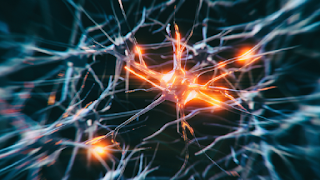-
Neurophysiologists have discovered evidence that the development of Huntington's disease is accompanied not only by mass death of nerve cells, but also by malfunction of small vessels of the brain, which significantly impairs the oxygen supply.
Neurophysiologists have discovered evidence that the development of Huntington's disease is accompanied not only by mass death of nerve cells, but also by malfunction of small vessels of the brain, which significantly impairs the oxygen supply.
A statement from the British Lancaster University media office said: “Scientists have discovered that Huntington’s disease affects not only nerve cells, but also microscopic blood vessels in the brain. It has become clear that changes in the functioning of brain vessels occur even before the first visible symptoms of Huntington’s disease appear, which "It can be used to diagnose the disease early or evaluate the effectiveness of treatment and lifestyle changes."
A group of neurophysiologists at the university, headed by Professor Anita Stefanowska, made this discovery while studying the brain functions of 30 carriers of the disease and the same number of healthy volunteers, using infrared spectroscopy and electroencephalograms. They also studied the work of the heart and lungs.
According to the researchers, their interest in the interactions between the brain and blood circulation was linked to a new discovery by biologists, as it turned out that the brain neurons that regulate blood flow in the tissues of the central nervous system contain large amounts of the HTT protein, whose composition is disturbed in those with Huntington’s disease, which made scientists believe The development of this disease may cause cell dysfunction and problems in supplying the brain with oxygen.
Indeed, it became clear to the researchers that carriers of Huntington's disease, including patients in its early stages, did not have nerve cell rhythms, blood vessel pulses, and respiratory function completely in sync with each other, which leads to problems in supplying brain cells with oxygen. While this condition was not observed in healthy volunteers. According to them, this will facilitate the diagnosis of the disease at an early stage.
It should be noted that Huntington's is a rapidly developing disease of the nervous system, associated with the appearance of mutations in the HTT gene. The appearance of a very large number of genetic repeats within the HTT gene leads to the fact that by the age of 30-50 years, nerve cells in the brain begin to die, which leads to patients gradually losing control of limb movement, and then the brain’s cognitive functions weaken.





It's quite significant.
ReplyDelete